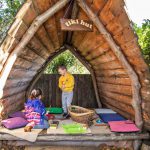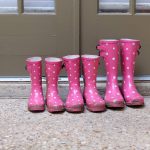Here’s our editorial piece for the July edition 4Dorset magazine.
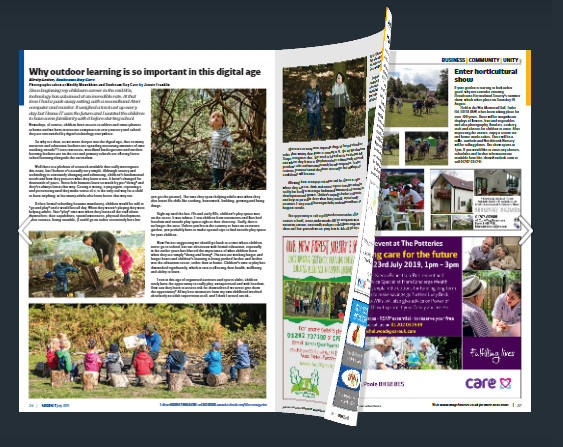 Why outdoor learning is so important in this digital age.
Why outdoor learning is so important in this digital age.
Since beginning my childcare career in the mid nineties, technology has advanced at an incredible rate. At that time I had a pack away setting, with a second hand Atari computer and monitor. It weighed a ton to set up every day but I knew I.T. was the future and I wanted the children to have some familiarity with it before starting school.
Nowadays of course children have access to tablets and smart phones at home and we have interactive computers in every nursery and school, they are surrounded by digital technology everywhere.
So why is it then, as we move deeper into the digital age, that so many nurseries and education facilities are spending increasing amounts of time teaching outside? Forest nurseries, woodland kindergartens and outdoor learning facilities are on the rise and primary schools are offering forest school learning alongside the curriculum.
Well there is a plethora of research available that really investigates this issue but I believe it’s actually very simple. Although society and technology is constantly changing and advancing, children’s fundamental needs and how they process what they learn is not. It hasn’t changed for thousands of years. Those little humans learn so much by just DOING and they’ve always learnt that way. Getting it wrong, trying again, repeating it and persevering until they make sense of it is the only real way for a child to learn anything, in fact many adults also learn better that way too.
Before formal schooling became mandatory children would be told to “go and play” and it would last all day. When they weren’t playing they were helping adults. That “play” time was when they learnt all the stuff about themselves; their capabilities, spatial awareness, physical development, basic science, being sociable, (I could go on rather extensively here but you get the picture). The time they spent helping adults was when they also learnt life skills like cooking, housework, building, growing and fixing things.
Right up until the late 70’s and early 80’s, children’s play space was on the street. It was infinite. Even children from tenements and flats had freedom and outside play space right at their doorstep. Sadly that is no longer the case. Unless you live in the country or have an extensive garden you probably have to make special trips to find outside play space for your children.
Now I’m not suggesting we should go back to a time where children never go to school, but our obsession with formal education, especially in the earlier years has blurred the importance of what children learn when they are simply “doing and being”. Parents are working longer and longer hours and children’s learning is being pushed further and further into the education sector rather than at home. Children’s time to play has diminished significantly, which in turn is affecting their health, well-being and ability to learn.
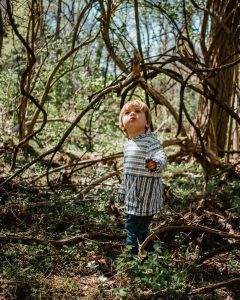 Even in this age of organised activities and sports clubs children rarely have the opportunity to really play; unsupervised and with freedom. How can they learn to assess risk for themselves if we never give them the opportunity? All my best memories from my own childhood involved absolutely no adult supervision at all, and I think I turned out ok….
Even in this age of organised activities and sports clubs children rarely have the opportunity to really play; unsupervised and with freedom. How can they learn to assess risk for themselves if we never give them the opportunity? All my best memories from my own childhood involved absolutely no adult supervision at all, and I think I turned out ok….
There are so many more important things for 4 year olds to learn than writing their name or counting to 20. The Early Years Foundation Stage recognises that. They need to learn about the world around them and where they fit into it. They have to learn to think critically; assess risk, problem solve and most importantly become independent. The more realistic, practical stimuli they have the stronger their knowledge and confidence will become.
Allowing them to engage with nature and the elements in a space where they can run, climb, make noise, express themselves and explore safely but freely is meeting a fundamental human need and is essential for development and growth. Children’s language develops better outside, and boys in particular thrive when doing practical, physical learning activities. EVERY area of learning including mathematics and literacy can happen outside.
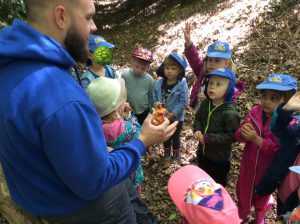 The opportunity to truly experience the seasons and use all their senses to build, create, make mistakes and get messy means we are nurturing curious, emotionally intelligent, resilient human beings. Even at 3 and 4 years old we are giving them the skills and tools they need for life. With the confidence to question the Why? Where? What? How? They will in turn retain what they learn so much more effectively. When we talk about “school readiness” what could be better than an active, curious learner who wants to know more?
The opportunity to truly experience the seasons and use all their senses to build, create, make mistakes and get messy means we are nurturing curious, emotionally intelligent, resilient human beings. Even at 3 and 4 years old we are giving them the skills and tools they need for life. With the confidence to question the Why? Where? What? How? They will in turn retain what they learn so much more effectively. When we talk about “school readiness” what could be better than an active, curious learner who wants to know more?
Every child is born with an innate curiosity, energy and zest for life. By encouraging and nurturing that we are meeting a basic human need and at the same time investing in the future. We may be facing a digital age, we should allow that humanity to flourish, because they may only be “playing” now, but these little explorers are also the scientists, surgeons, farmers and teachers of tomorrow.

